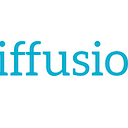A cultural tastemaker creates and brings ideas, messaging, and trends to the masses. This should not be confused with a tastemaker who makes recommendations of what products we should buy. The difference is that a cultural tastemaker comes up with their ideas, messaging, and trends. The most significant success factor for building brands and businesses into cultural tastemakers is not marketing dollars or creating a great product but creating new ideas that become part of the cultural norm.
For example, The New York Times’ restaurant, Michelin Reviews and Pitchfork Media can make or break a restaurant, a show, or even an artist with their opinions.
A cultural tastemaker is a system or individual who can inspire a community through a different lens with opinions that provide value.
Why do cultural tastemakers drive culture?
Cultural tastemakers are different from others, except for one crucial difference: they tend to drive culture. They go culture because they tend to stray away from the cultural norms and cultivate a new one. The original tastemakers historically, popular culture has been closely associated with mass media that introduce and encourage the adoption of specific trends. We can see these media or influencers as “tastemakers” — people or institutions that shape the way others think, eat, listen, drink, dress, and more. Similar in some ways to the media gatekeepers discussed above, tastemakers can have enormous influence.
Tastemakers can help keep culture vital by introducing the public to new ideas, music, programs, or products. But by being able to sway and influence the tastes of consumers can be worth millions of dollars. Tastemakers are encouraged to buzz and promote “the next big thing for the culture.”
Taste-making creates demand for the new product by having people keep an eye out (or skip) certain movies, television shows, video games, books, tips, books, or fashion trends.
Cultural tastemakers today
If you want to discover things that everybody is talking about right now — where should you start? Does it fit your niche? Well, Twitter is pretty good. It’s an ideal space for both new and recycled ideas or maybe Tik-Tok — some... dances? How about Youtube…. pranks? There’s a ton to choose from, and all revolve around either an algorithm or social content with a little cultural perspective. 🙄
Becoming a cultural tastemaker can be done through a little creativity and resources. In the digital age, it’s become a game of virality, likes, and followers instead of quality opinions. In your niche — whether it be self-growth, fashion, music, or everyday life — you’ll find people whose opinions you trust and find valuable; you can feel it.
